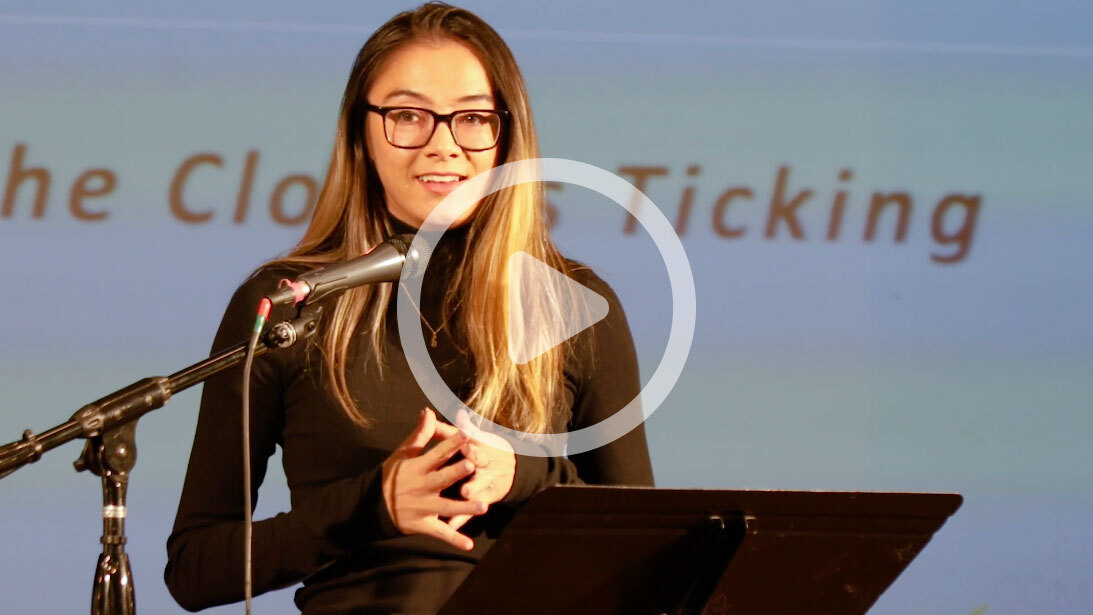“At Seattle Foundation, our impact is shared with many partners. This Impact Report is as much about your impact as it is ours.” – Tony Mestres, President & CEO of Seattle Foundation
Our mission is to ignite powerful, rewarding philanthropy to make Greater Seattle a stronger, more vibrant community for all. We envision a thriving region of shared prosperity, belonging, and justice, where all individuals and communities have equitable access and outcomes, regardless of race, place, or identity.
Why & How We Do This Work
A Message from President & CEO Tony Mestres
Where we’ve been points to where we’re going.
So much has happened in 2020 already that 2019 can seem like the distant past. At Seattle Foundation, we’ve spent the majority of this year deeply engaged in efforts to address both the consequences of COVID-19 and the growing, imperative push for racial justice—important work that calls us to lead with our values and double down on our commitment to the community.
This work would not have been possible were it not for the strides we made last year, a period during which we crystalized several decades of our own evolution and solidified our focus on equity, shared prosperity, and belonging. In doing so, we embraced collaboration and put meaningful partnerships into practice. We listened to the expertise of people on the ground doing the work and invested in their voices and leadership. We funded successful policy change. We spoke out on issues. We reframed the way we see our own role as the region’s community foundation.
This progress set the stage for 2020 and beyond. In this report, we’ve highlighted some of last year’s most significant insights and accomplishments, along with a snapshot of 2020 so far, to illuminate the path we’re walking and where it’s taking us.
Thank you to all of our philanthropists, grantees, and partners for your incredible work and generosity, without which none of this would be possible.
Photo courtesy of Civil Survival
Community Philanthropy
We are reimagining the role of community philanthropy to ensure our region is a stronger, more vibrant community for all.
As the world around us continues to change, philanthropy must change with it. The insights we’ve gained and the relationships we’ve nurtured over time all point toward a new approach to community philanthropy, an approach built on five key innovations that fuel one another and guide all of our work.
Coming Soon! Blueprint for Impact
Throughout 2019 we worked to develop a Blueprint for Impact, a framework that outlines a series of bold strategies for advancing racial equity, shared prosperity, and belonging in our region. Debuting later in 2020, the Blueprint takes shape around three pillars of focus: A Just Democracy, Equitable Economy, and Resilient Environment.
An Integrated Approach
From values to philanthropic strategies, Seattle Foundation is committed to an approach that integrates who we are, what we do, why we do it, and how we can make the biggest difference.

We’re honored!
The NonProfit Times included Seattle Foundation on its 2019 Power & Influence Top 50 list as “a case study for remodeling civic purpose for justice and equity.” It also named Tony Mestres its Influencer of the Year, a special recognition awarded to the leader of just one of the 50 organizations on the list.
Equity
To achieve transformational change, equity must be at the center of our work.
Everyone deserves access to the benefits of a healthy community. Our focus on equity manifests in a range of programs and learning opportunities, all of which are designed to address racialized disparities perpetuated by long-term underinvestment.
Climate Justice
The impacts of our changing climate are undeniable—and they continue to disproportionately affect communities of color and low-income communities. Yet we all play a role in achieving climate justice. By focusing on those who are hit first and worst, we can ensure that we all thrive.
Through our Climate Justice Impact Strategy, launched in early 2019, we are working to simultaneously slow carbon pollution, help communities adjust to changes caused by existing pollution, build strong networks that strengthen community resilience, and support the leadership of people who are most affected by changes in our environment. In 2019, we invested $700,000 in organizations mobilizing for climate justice in a variety of ways—from advocacy and organizing to storytelling projects that support voices of color covering climate issues. Investing in those voices is crucial, as only 9% of environmental coverage is created by people of color nationally.
Philanthropists had the chance to learn and engage in this work in various ways last year. A February event convened a conversation with local and national climate justice leaders, including Aiko Schaefer of Front and Centered, who said, “Not only do people [of color] care deeply about climate, they are pivotal to winning on any policy, they have great ideas, and they know how to solve this problem.”
An August boat tour of the Duwamish River with staff from the Duwamish River Cleanup Coalition and Puget Soundkeeper Alliance gave philanthropists a chance to see and hear firsthand the impacts pollution and climate change have had on Seattle’s industrialized estuary and the people who live and work nearby. Opportunities like this inspire gifts—both to our work and to our partner organizations. One anonymous donor awarded Seattle Foundation a 1:1 matching grant of $250,000 toward our Climate Justice Impact Strategy.

“I was struck by the human impact on the river; a vivid demonstration of disparity. This is an environmental effort that feels different. It’s more than preservation; it’s human impact as well.” —Steve Hill, Seattle Foundation philanthropist and board member
Grantee Spotlight
Unfair Share Report
The Unfair Share Report, produced by the University of Washington’s Climate Impacts Group and Front and Centered, found that people of color, Indigenous people, and those with lower incomes frequently face greater risks due to climate change. For example, with temperatures in the Puget Sound region projected to be as much as 10°F warmer by the end of this century, people who work in agriculture, construction, and other outdoor jobs—many of whom are people of color—will be exposed to more extreme conditions that pose significant health risks.
“Climate change is a global issue, with specific local impacts,” said Heidi Roop, a Climate Impacts Group research scientist. “Who you are, where you work, and where you live are all critical factors in how you experience the impacts of climate change.”
Creative Equity Fund
Arts and culture are powerful tools for engaging the community in civil discourse and inspiring action. They help us to imagine and advocate for a just world. Supporting organizations led by people of color, the Creative Equity Fund is a funder collaborative that invests in arts- and culture-based strategies to dismantle structural racism. In 2019, it granted $200,000 to 13 organizations that produced programming focused on bridging understanding across cultural communities and promoting racial justice.
Grantee Spotlight
Arts Corps
Arts Corps provides under-resourced youth with learning opportunities that develop artistic skills, foster creative capacities, and cultivate youth voices. Evaluation reports show success.
- 92% of teen leadership program participants report impact in the areas of creative capacities, leadership and organizing, sense of belonging, community engagement, and social justice.
- 97% of elementary arts program participants report a program impact on creativity, critical thinking, and problem-solving skills.
- 92% of Teen Arts and Creative Schools participants agree they are using a growth mindset and advancing their self-efficacy and agency through Arts Corps classes.
Photo courtesy of Arts Corps
Neighbor to Neighbor
Since 1991, Neighbor to Neighbor has been supporting grassroots efforts to increase engagement, power, and influence among community members affected by poverty and racial disparities. Every year the program disperses $200,000 through 40 grants to grassroots organizations in South Seattle, White Center, and Kent. Past grants have seeded many organizations that do essential work in local community organizing and movement building, such as OneAmerica, which has become the largest immigrant and refugee advocacy organization in Washington state. Learn more about the inspiring and innovative community organizations we funded in winter, spring, summer, and fall of 2019.
Our Racial Equity Journey
In many ways, Neighbor to Neighbor’s launch in 1991 marked our first major step toward recognizing racial disparities and investing in community-led organizations that historically had been locked out of funding opportunities.
To complement Neighbor to Neighbor’s ongoing support for grassroots organizations, in 2014 we created Communities of Opportunity, a groundbreaking partnership with King County directed at large-scale changes to the systems and policies that affect health, housing, economic opportunity, and community connections in our region (read more on this in the next section).
Over the course of 2016, our Vibrant Democracy Initiative took shape as a way to support underrepresented community voices and organizations with funding for leadership development, power-building, and civic engagement.
The Center for Community Partnerships integrates all of these efforts to advance racial and economic equity at multiple levels.
These programs represent one part of our work to dramatically increase support for Black, Indigenous, and communities of color, recognizing that many decades of underinvestment have contributed to the perpetuation of harmful inequities in our region.
Grantee Spotlight
Not This Time
In 2016, 46-year-old Che Taylor, a Black man, was shot and killed by police officers while standing outside a parked car in Seattle’s Wedgwood neighborhood. His death was a lightning rod for his older brother, Andrè, who started Not This Time to demand more police accountability and safer communities. Seattle Foundation gave the organization its first grant in 2017 and has continued to support it since, including multiple grants so far in 2020.
In 2018, Not This Time successfully worked on the passage of Initiative 940, which requires police training to de-escalate volatile situations and avoid the use of deadly force. It also requires that police receive mental health intervention and first aid training and removes the state’s previous malice clause, making it more feasible to prosecute police officers in situations where deadly force is used. Not This Time has been active in organizing efforts during the uprising against police violence in 2020.
Donor Spotlight
George & Keri Rhodes

Social justice was deeply important to George and Keri Rhodes well before they met, got married, and started a family. “That’s where our passions lie,” Keri explains. In 2019, the couple contributed to several equity-oriented efforts with Seattle Foundation, including the Climate Justice Impact Strategy and the Creative Equity Fund, both of which offered an opportunity to increase their impact by joining together with other donors. “Our one donation may or may not make a difference,” says George, whose family has a long tradition of philanthropy in the region. “But together we can have a real impact.”
The Rhodes are also committed to trusting the expertise of people doing the work on the ground. “Now more than ever,” Keri says, “it’s time for philanthropists to fund those working on the front lines of their causes, with minimal barriers and no backseat driving.”
Better Systems + Policy Change
We not only invest in efforts to build better systems, we lend our voice in support of policy change.
Our region’s disparities in income, health, and access to opportunity are rooted in historically inequitable systems. Changing these systems necessitates philanthropic support for community efforts to advocate for more just systems and government policies. Sometimes that means that we, as an institution, must use our own influence, credibility, and voice to publicly back such efforts.
Communities of Opportunity
In 2019, Communities of Opportunity (COO), a funding partnership with King County Public Health, invested $8,213,218 in more than 60 community-based organizations working to advance place-based policy changes aimed at improving health, housing, and economic outcomes for underrepresented low-income communities and communities of color throughout King County. A number of the grantees are coalitions aimed at changing policies and government practices to advance racial and economic equity. Their efforts led to several major policy improvements in housing, civic participation, education, health, and economic opportunity last year, a few of which are listed below.
- Civil Survival won passage of The New Hope Act, a bill to support formerly incarcerated individuals as they re-enter society.
- Statewide Poverty Action Network passed a slate of debt reform bills that provide consumers more equitable protections.
- Casa Latina—an immigrant worker rights organization that empowers Latino immigrants—led a coalition to pass a first-of-its-kind law in the country to extend basic protections to domestic workers through a Domestic Workers’ Bill of Rights.

Grantee Spotlight
Church Council of Greater Seattle
In Burien, community members were facing an array of affordable housing challenges. So Church Council of Greater Seattle hosted a series of community research sessions, inviting folks to identify policy solutions to solve their housing problems. The organization then developed a slate of affordable housing policies, including Just Cause Eviction protection, and successfully organized to pass them—making Burien the second city in Washington with such crucial renter protections. Just Cause Eviction protects vulnerable renters by requiring landlords to only evict tenants for certain limited reasons and to comply with given notification and timeline requirements.
Civic Leadership on Ballot Measures
The ballot last November included two measures of critical importance to the work of our partners and the well-being of our region, which is why Seattle Foundation, with the support of our Board of Trustees, stepped up to take public positions on both, alongside a number of civic leaders from the public, private, and nonprofit sectors.
Unfortunately, neither measure turned out the way we had hoped it would. But even in loss, it’s important to take a stand against structural inequities that will further harm vulnerable families, especially people of color. It is likewise important to help the community engage in a constructive debate about these issues by expressing our position.
Donor Spotlight
Perigee Fund

When Lisa Mennet founded Perigee Fund in 2018, she drew on her many years of professional expertise working in early childhood mental health. After an extensive process in 2017 to explore “what a philanthropic effort could look like,” she says, Perigee Fund launched with a focus on the crucial relationships between parents and infants as well as on maternal mental health. The Fund became a Supporting Organization at Seattle Foundation in 2019.
“We’re focused on the many barriers parents and caregivers face during pregnancy and the period when children are infants or toddlers,” Mennet says. “Each family has their own set of stressors,” often exacerbated by poverty, racism, and trauma. Through its grantmaking, Perigee Fund resources specific, intimate supports for families and also works to raise awareness and increase the effectiveness of existing systems, such as Washington’s new paid family and medical leave program.
Partnerships
Partnering is not one way to do it, it’s the only way to do it.
We can have the greatest impact when we unite with partners—both within and across sectors—to share our expertise and pursue collective goals. Seattle Foundation applies this principle in our support for innovative efforts to bring people together for the greater good.
Strengthening Democracy
In a healthy democracy everyone gets counted, everyone votes, and everyone is heard.
Regional Census Fund
In partnership with King County and the Cities of Seattle, Bellevue, Kirkland, and Redmond, we led the creation of a $1.25 million Regional Census Fund that is working to ensure a fair, accurate, and inclusive census count this year, particularly in historically undercounted communities. Through our Catalyzing Community Impact Strategy, we provided seed funding for the Washington Census Alliance, which secured a $15 million budget commitment from the State Legislature to support an accurate 2020 Census. We also played leadership roles in Washington State Complete Count Committee and the King County Complete Count Committee, and an op-ed coauthored with the Bill & Melinda Gates Foundation and Philanthropy Northwest called attention to the risks in not reaching historically undercounted populations.
Voter Education Fund
In partnership with King County Elections, in 2019 our Voter Education Fund granted $500,000 to 40 organizations working on voter education and registration efforts in King County. Outreach efforts by grantees focused on reaching communities who are more likely to experience barriers to voting, specifically communities of color, low-income youth, limited English speakers, immigrants, refugees, LGBTQ+ individuals, residents of tribal reservations, senior citizens, formerly incarcerated individuals, and people with disabilities, among others.
- 7,950 King County residents were registered to vote (up 9.7% from 2018)
- 139,531 King County residents were educated about the importance of their vote in local and national issues
“If you want our dollars in philanthropy to go further, we need to make sure we are getting our fair share of government funds.” — Gary Locke, Former Washington State Governor, U.S. Secretary of Commerce and Ambassador to China
Donor Spotlight
F5

As a technology company with offices all over the world, F5 is committed to being a force for good. For decades, it has supported volunteerism and giving through employee-driven and regional initiatives. Then, in 2019, the company endeavored to formalize and scale its social good efforts by creating the F5 Foundation at Seattle Foundation and launching F5 Global Good, a social impact program.
Inspired by Reboot Representation, a coalition of tech companies working to increase the number of Latinx, Black, and Native American women graduating with computing degrees, one area of focus for the F5 Foundation is increasing access to STEM education and career opportunities for women and girls of color, as well as for other underrepresented and underserved groups globally. The fund recently completed its first STEM grant application process, reviewing proposals from 16 countries. The process “allowed us identify organizations with whom we could be an impactful partner,” says Ana White, F5’s Executive Vice President and Chief Human Resources Officer.
Upholding a Free Press
Investigative Journalism Fund
As the media industry changes, philanthropy has a role to play in innovations that keep the free press vital. In 2019, we became the fiscal sponsor for the Investigative Journalism Fund at The Seattle Times, a fund that supports in-depth original reporting and is the first of its kind in the nation. Its innovation caught the attention of the Knight Foundation, which in August 2019 awarded a $250,000 grant toward this effort.
Impact Investments
New investment tools created in 2019 offer innovative ways for philanthropy to unlock capital for small business, affordable housing projects, and efforts to address climate change. They focus on areas of stark inequity and disinvestment and use community-driven, cross-sector partnerships that confront persistent community challenges.
Community Investment Guarantee Pool
Seattle Foundation was the first community foundation to join the Community Investment Guarantee Pool, a unique national finance vehicle led by the Kresge Foundation that will ultimately catalyze more than $350 million in new investments in small businesses, climate change mitigation, and affordable housing—providing capital to those historically locked out of traditional lending options. It works by leveraging money that is sitting idle on balance sheets to centralize a source of credit enhancement for people and projects that need it most.
Evergreen Impact Housing Fund
In the past decade, housing costs have risen two times faster than incomes, often forcing working-class families to leave our region because they simply cannot afford housing. It is prohibitively difficult to build affordable housing in Seattle and the surrounding areas because land and construction costs are high, which leaves affordable housing developments with significant financing gaps. To make new housing projects financially feasible, developers push them farther away from where we need them most—near family-wage jobs and transit. The Evergreen Impact Housing Fund is a new partnership between Seattle Foundation and the Washington State Housing Finance Commission, with generous development support from JPMorgan Chase & Co, Microsoft Corporation, Tableau Foundation, and a coalition of credit unions. It aims to raise $150 million over five years to create at least 3,750 rental units for working-class households.
“By joining together as a community, we can unlock additional resources and encourage large-scale investments toward key drivers of inclusive growth.” — Phyllis Campbell, JPMorgan Chase & Co., Chairman of the Pacific Northwest
Every donor can make a difference, but every generation needs a group of individuals to envision a sea change and a better future for their children and neighbors. Bringing this kind of vision to life takes expert knowledge, transformational partnerships forged with trust, and the tools to make meaningful decisions that maximize impact. The Changemakers Circle is a powerful way to leave a legacy.
One philanthropist joined this remarkable group last year with an unrestricted bequest. Having lived in Washington nearly all of her life, Jan Lowen had a deep understanding of the community and its needs. During her lifetime, she had been an active and generous supporter of local causes, including higher education, women’s issues, hunger, social justice, and cancer research. She also gave to efforts to protect and steward the environment—a reflection of her love for outdoor adventures. Now her bequest helps to fuel many of Seattle Foundation’s efforts, including crisis relief in 2020. Jan’s vision continues to power meaningful change in the place she loved and called home.
Civic Commons
Civic Commons launched in fall 2019 to address the root causes of racial and economic inequity by reimagining the way communities work together. Through a trio of initiatives, it builds stronger bonds of connection and belonging between regional leaders to achieve better outcomes for all King County residents.
- A balanced view of shared prosperity is critical to informed decision-making and collaboration. The Scorecard for Shared Prosperity is a tool that measures prosperity through five key dimensions, built upon research from Brookings Institution and the Urban Institute.
- We Belong Here develops meaningful relationships between people and institutions from all sectors because a better sense of shared belonging can move relationships from transactional to relational to transformational.
- Network Weaving convenes leaders and community members around each of the Scorecard dimensions to discuss their needs and share resources.
Stepping Up to 2020
Our work in 2019 prepared us to address the formidable challenges of 2020.
Faced with the health and economic crisis brought on by the COVID-19 pandemic and the uprising for racial justice that followed the killings by police of Ahmaud Arbery, Breonna Taylor, George Floyd, and so many others, Seattle Foundation mobilized to create and support several major funds and philanthropic campaigns in collaboration with a wide range of partners. Here’s a snapshot of activities through Aug. 31.
Financials
Increased Community Impact
Seattle Foundation Grantmaking from 2012–2019
With the support of our philanthropists and partners, Seattle Foundation has seen our grants increase by 188% over the last eight years, from $67.35 million in 2012 to $126.97 million in 2019. Collectively, we have granted out more than $721 million to the community since 2012.
This chart provides a look at how our grantmaking has been increasing over time, including a $9.3 million increase in 2019 over the previous year. The supporting table indicates the corresponding fund types that made those grants in 2019. It also shows the considerable influence of our philanthropic partners, who direct or advise on the vast majority of those grants from more than 1,200 funds. Community Funds, a portion of Area of Interest Funds, and grants from external funders combine to support Seattle Foundation’s grantmaking through our community programs, which work to advance our theory of change. In 2019, our community programs made grants totaling $7,075,000.
2019 Grantmaking by Fund Type
Our total grantmaking in 2019 was $126.97 million. Please see the following graphs to find a breakdown by fund type. We also invite you to review our full audited consolidated financials.
These funds—of which there are roughly 596—allow donors to recommend grant recipients that align with their values and interests.
These funds allow donors to support a specific field of interest or specific geographic area.
These funds are designated by donors who wish to support a specific charitable organization, in many cases both during their lifetimes and beyond. They can be endowed but this is not a requirement.
Seattle Foundation is the fiscal sponsor of seven organizations, each of which is considered a program of Seattle Foundation. Contributions received for sponsored organizations are recognized as donor‐restricted contributions.
Seattle Foundation performs accounting, administrative functions, and a majority of Board appointments for seven Supporting Organizations with their own investment policies and grant guidelines.
These unrestricted funds power Seattle Foundation’s community programs.
Driven by donors, a variety of scholarship funds support areas of study, communities of students, and other specific areas of focus.
2019 Grantmaking by Issue Area








“Not everything that is faced can be changed. But nothing can be changed until it is faced.” ― James Baldwin


















